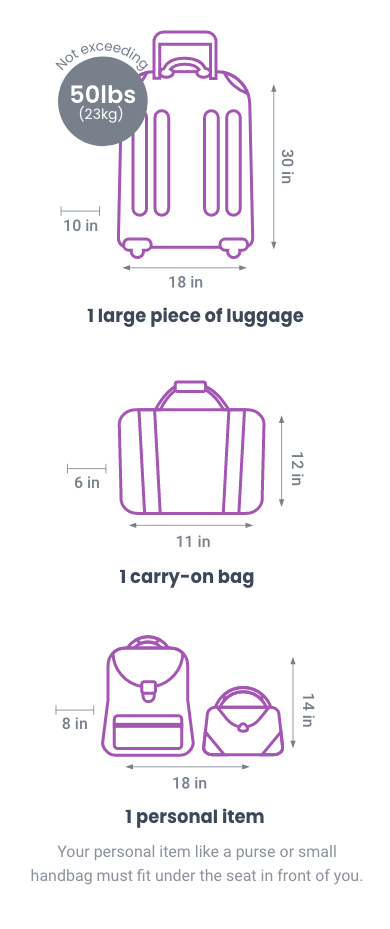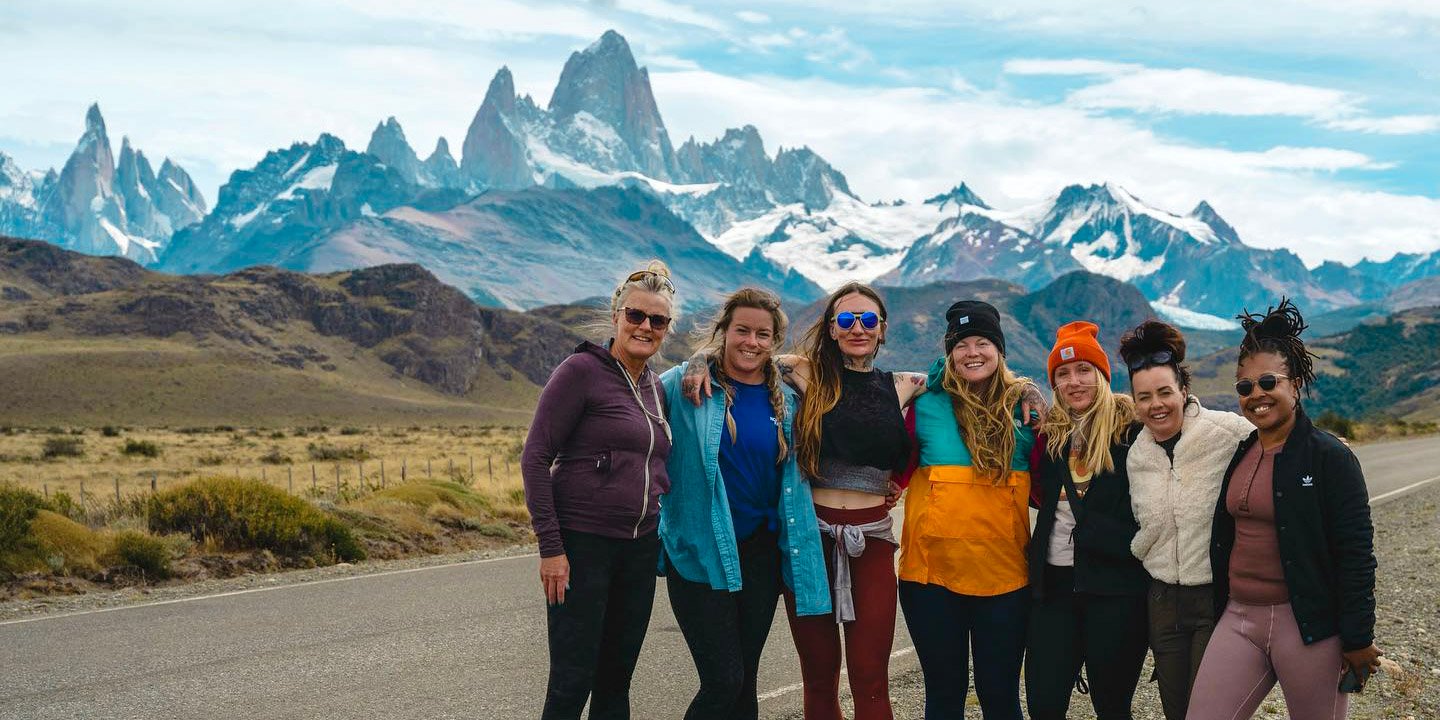About Patagonia
Overview
Patagonia is an ecologically diverse region in South America, split between Chile and Argentina. Two rivers flow through Patagonia, the Colorado and the Barrancas Rivers. Due to its unique geological formation, Patagonia has some of the most breathtaking and picturesque mountains, glaciers and coastlines. It is truly an outdoor paradise.
Capital city: Argentina: Buenos Aires // Chile: Santiago
Region area: 1,043,076 km2 // 402,734 sq mi
Population: 1,999,540 people (1.9/km2 //5.0/sq mi)
Currency: Argentine Peso (ARG$) and Chilean Peso ($ or CLP)
Land Division: 90% of Patagonia is located in Argentina, while the other 10% lies in Chile
Time Zone: Argentina Time- ART (UTC/GMT -3) AND Chile Summer Time- CLST (UTC/GMT -4)
Emergency Number: 911
Outlet: Types C/I
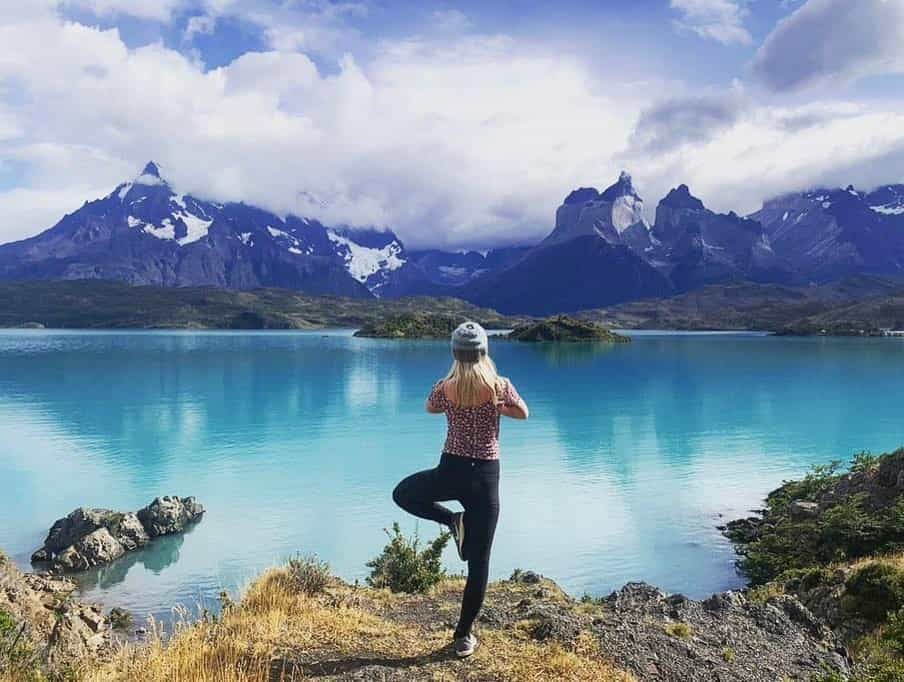
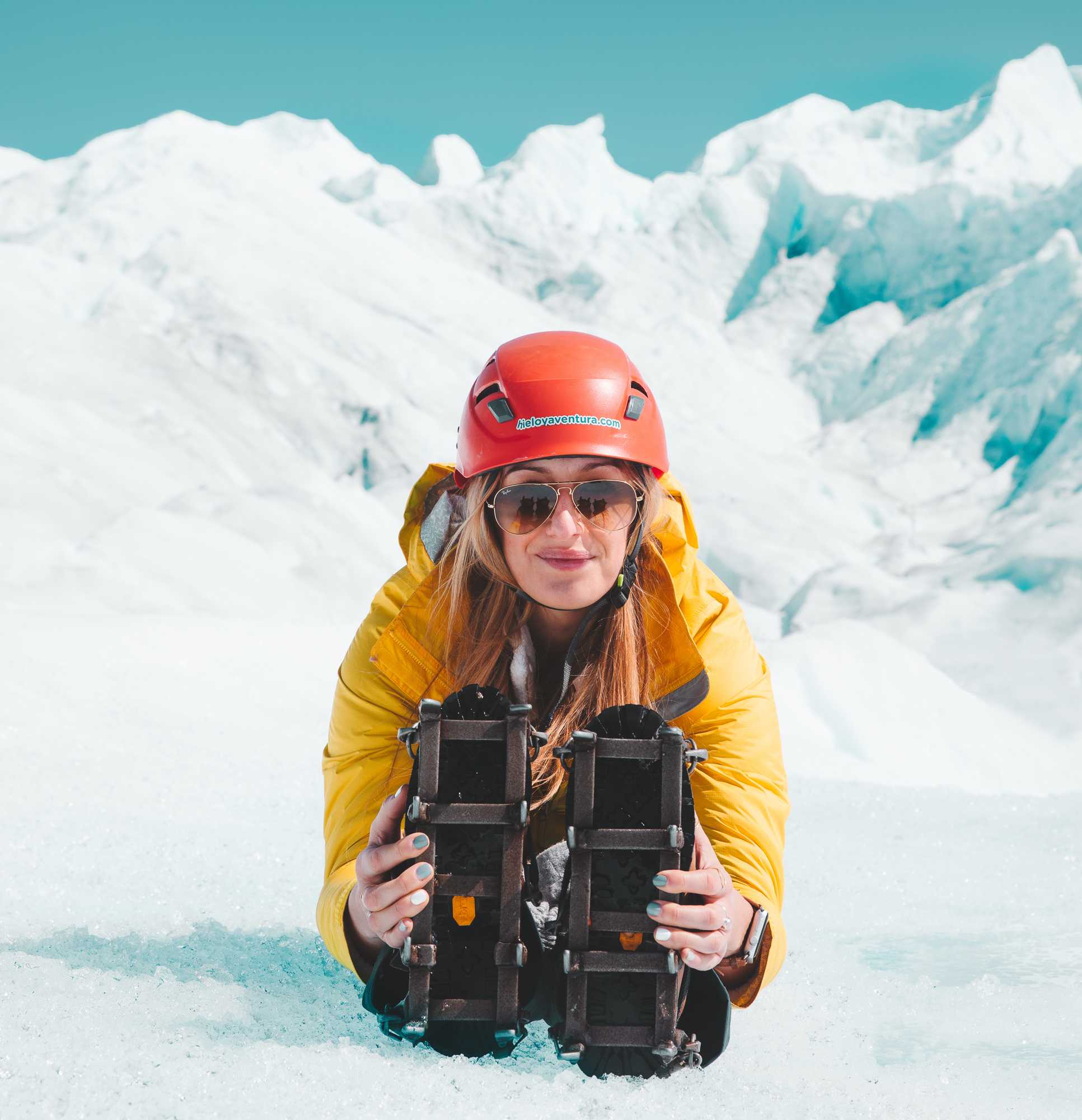
Packing List
Speak the Language
Spanish is the official language of both Argentina and Chile
- Hello - ¡Hola! (O-la)
- Goodbye - ¡Adios! (AH-dee-ohs)
- Thank you - Gracias (GRA-see-as)
- Do you speak English? - ¿Habla inglés? (Ab-la in-GLAYS)
- I (don’t) understand - Yo (no) entiendo (yo no en-tee-EN-doh)
- How are you? - ¿Cómo está? (KOH-moh eh-STAH)
- I’m fine, thank you - Bien, gracias (bee-EN, GRA-see-as)
- What’s your name? - Cómo te llamas? ((KOH-moh te ya-mas?))
- My name is… - Me llamo… (May ya-moh… )
- Where is... - ¿Dónde está… (DON-day es-tah...)
- The bathroom - el baño (el BAH-nyo)
- An ATM - un cajero (un kah-HEH-roh)
Google Translate: Download the Google Translate app or click here
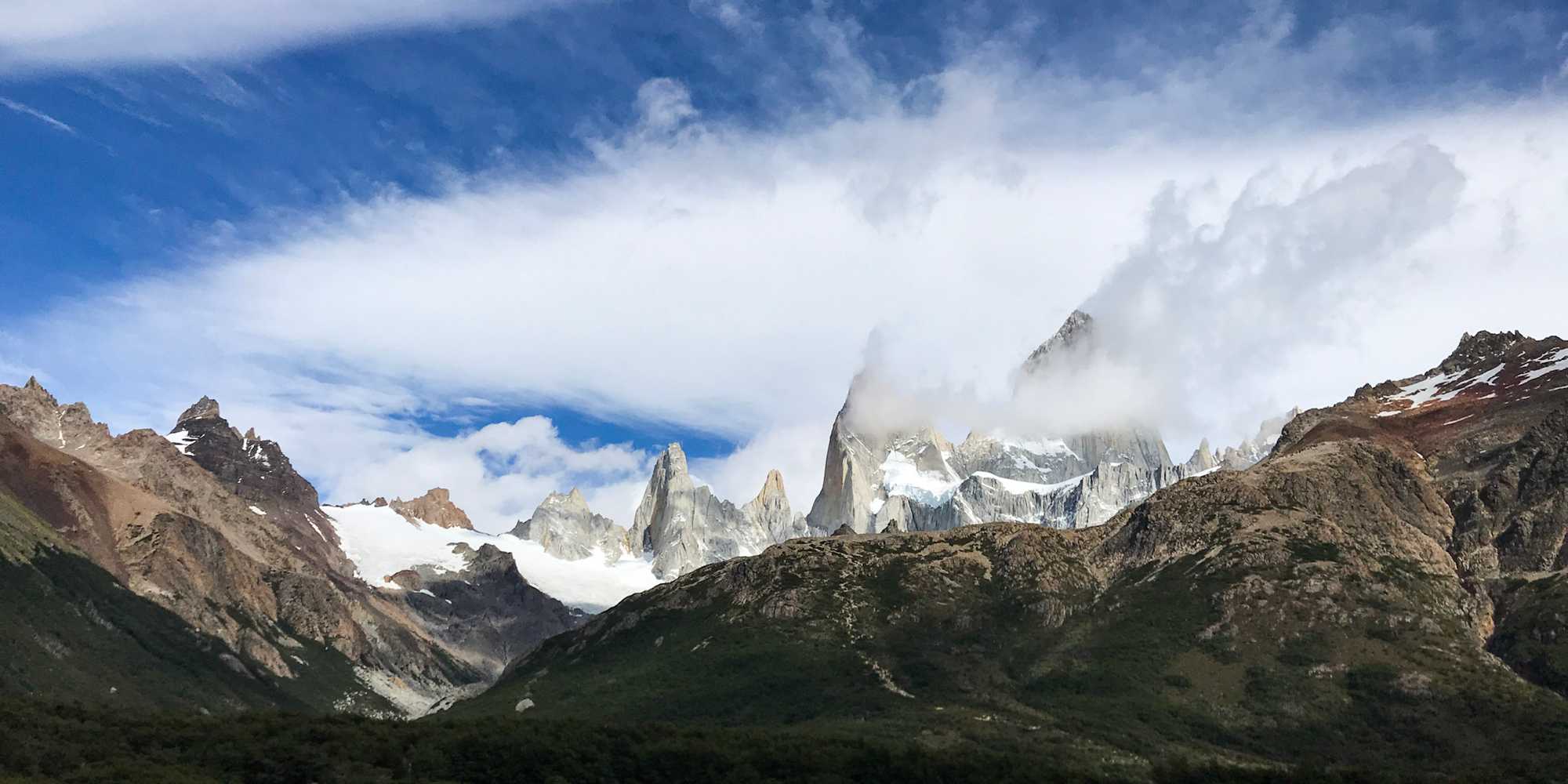
Weather
EL CHALTÉN WEATHERFun Facts
- Patagonia's coastal lines are surrounded by three different oceans: the Pacific Ocean to the west, the Atlantic Ocean to the east, and the Southern Ocean (aka Antarctic Ocean) to the south.
- The name Patagonia comes from the word patagones - meaning big feet. Early explorers swore they saw giants on the beaches of Patagonia and the name has stuck around ever since.
- Patagonia boasts the title of having the southernmost city in the world - Ushuaia, Argentina.
- The coasts of Patagonia are home to an impressive 1.7 million Magellanic penguins, as opposed to barely 2 million people.
- Torres del Paine in Chilean Patagonia was voted the Eighth Wonder of the World.
- The first known inhabitants of this region are the Tehuelche or the Aónikenk people. They are famous for their exceptional cave art, produced 9,500-13,000 years ago.
Tipping
Tipping Suggestions: Tips for Guides, drivers and restaurants are not included. Tips provide supplemental income, and, while not mandatory, are greatly appreciated. If the local teams have added to the experience, please reward them.
|
Trekking Guides
|
USD $6 per person/per day
|
|
|
Tour Leader
|
|
USD $10 per person/per day
|
|
Drivers
|
|
USD $3 per person/per day
|
|
Restaurants (full service)
|
|
USD up to 10% of total bill
|
FAQ
Where can I find information on travel safety? Check out the US Department of State's website for the most up-to-date information on safety while traveling.
How do you recommend preparing for the weather? Patagonia is known for its unpredictable weather and is infamous for being very windy. So, packing layers is the best way to be prepared. In the summer, temperatures usually range from about 50°F to mid-70s during the day and can drop into the 40s at night. Because of the strong winds that can reach up to 100mph, temperatures may seem colder. Shorts and t-shirts are great for warm days of hiking, but the nights and mountains can be quite cool! Long pants, warm upper layers and a windproof and waterproof jacket will be your best friend at the top of a mountain or on chilly nights. Plus, they protect your skin from the sun's harsh rays on this side of the planet.
Is the water safe to drink? Tap water in Patagonia is drinkable in most urban areas. However, it is recommended to consume bottled water in the more remote regions of the area. For hikes, we advise not to drink the glacier water unless it’s filtered or you have a self-cleaning straw.
Do I need a Visa? For Visa information, visit the following websites.
Make sure your passport is valid for at least six months after you return home and has two or more blank pages. Otherwise, some countries may not let you enter.
What about vaccines? For Vaccination information, visit the following websites.
Do you recommend travel insurance? While not required, we highly recommend all travelers get travel insurance for their trip to protect themselves from the unknown. Check out travel insurance options from our partner, worldnomads.com or from a provider of your choice.
How much should I pack? As we will be using shared transfers and spaces throughout our tour we recommend all travelers pack as lightly as possible. Please review our luggage restrictions below.
What does public transportation look like? There are taxis in the major towns in Patagonia (both in Chile and Argentina). The easiest way to get one is to ask your hotel or a restaurant to call one for you or go to the designated taxi stations. To travel across towns in Patagonia or across the border, buses are affordable and reliable. There is no Lyft or Uber available.
Are there ATMs in the area? Patagonian cities can be small and with limited ATMs. For instance, there is only one ATM in El Chaltén, which is located in the Bus station, but in high season it can be empty due to the high demand for cash as not all businesses, hotels, bars, and restaurants accept credit cards. So we recommend having cash with you because otherwise, you may run out of money. If you will visit Chalten, we recommend that you get cash from ATMs at Calafate or Buenos Aires airports. Remember that the machines only give Argentinian pesos notes.
Should I bring US dollars to Argentina? It is most cost-effective to bring all the money you think you will spend on your trip in US Dollars cash. A parallel unofficial dollar market exists with a separate rate called “blue dollar”, it is a better value than the official rate of exchange. Tour agents, as well as hotel reception and restaurant staff, will happily accept your foreign currency from you. Be sure that they are giving you the "blue dollar" rate, you can check the updated rate here.
Luggage Restrictions
.jpg)
